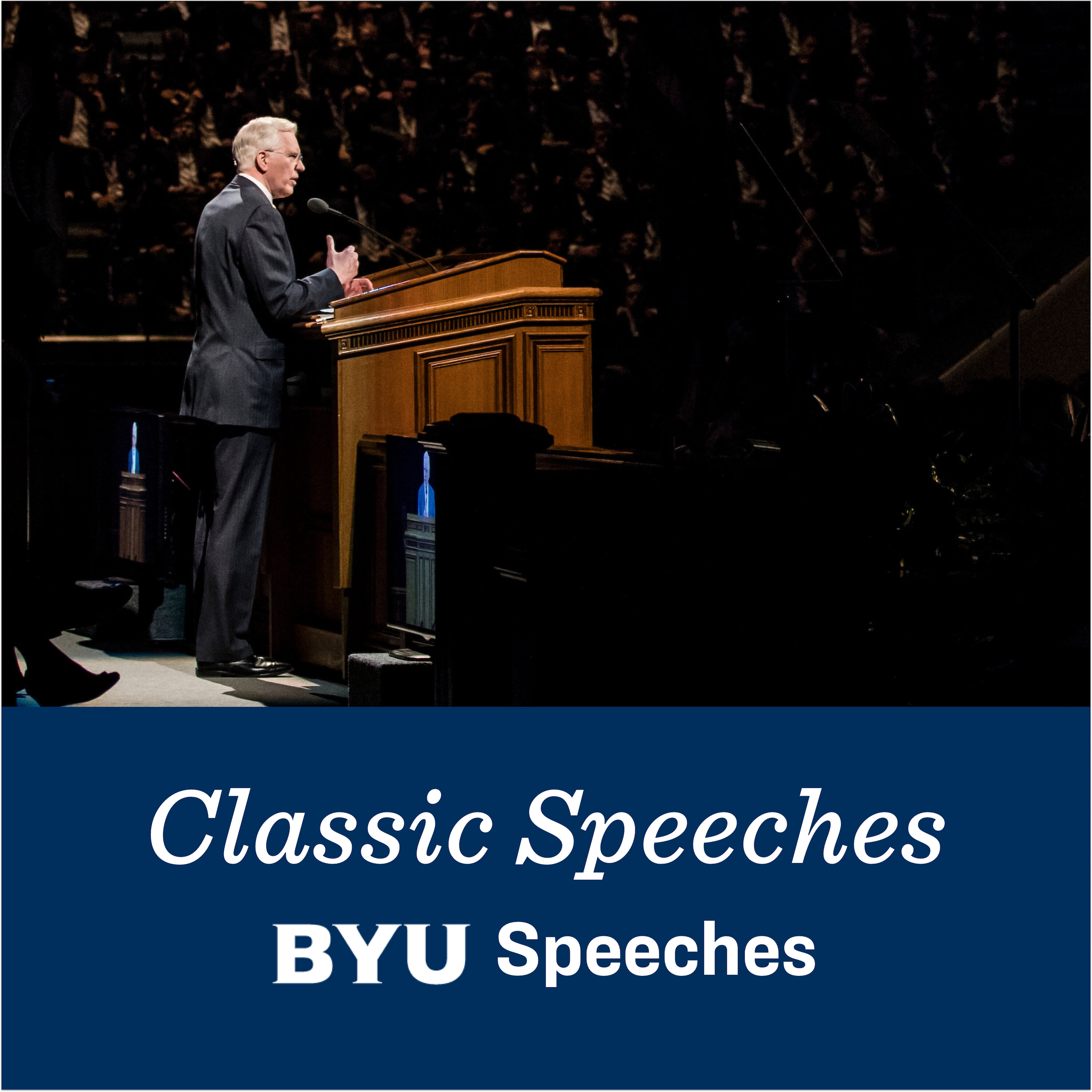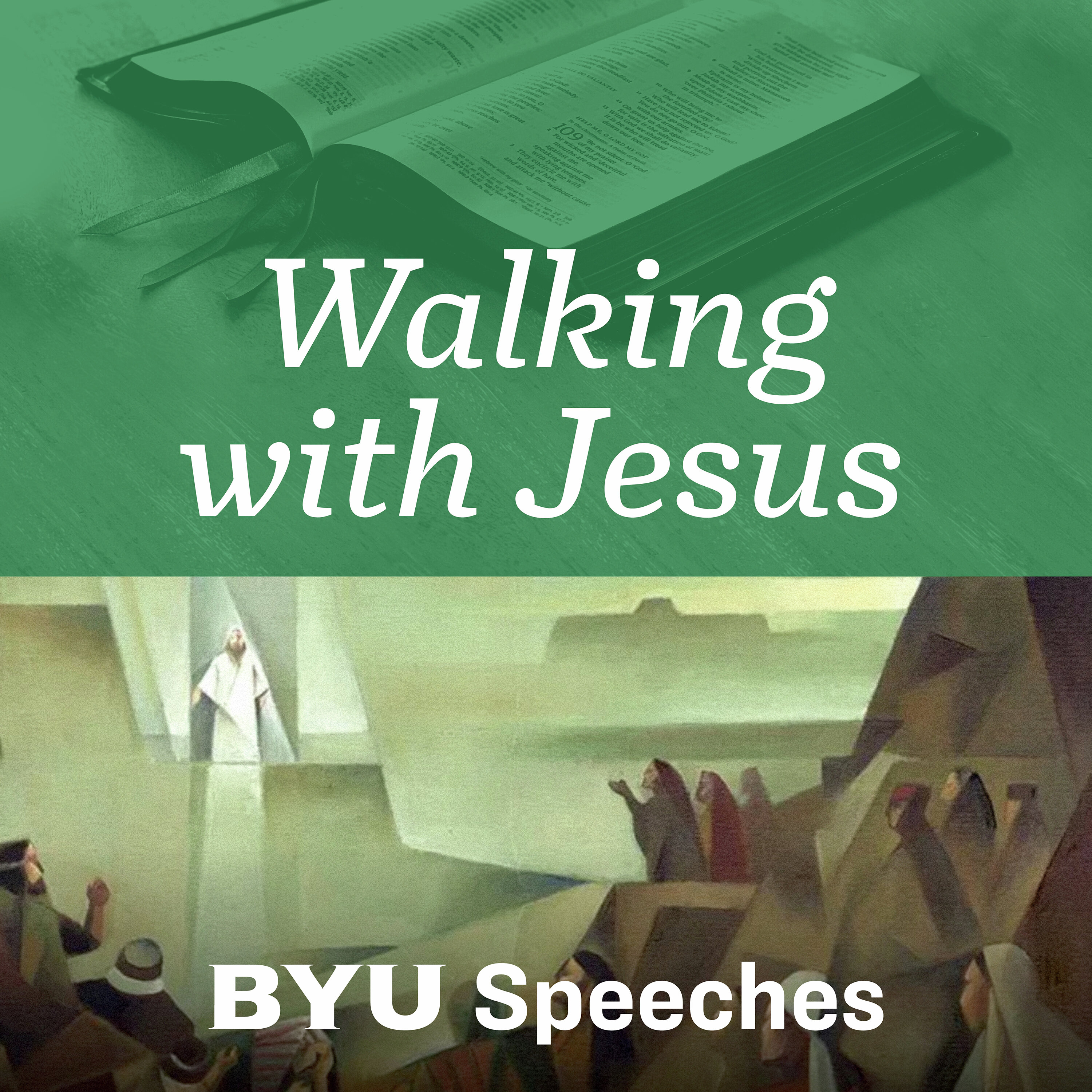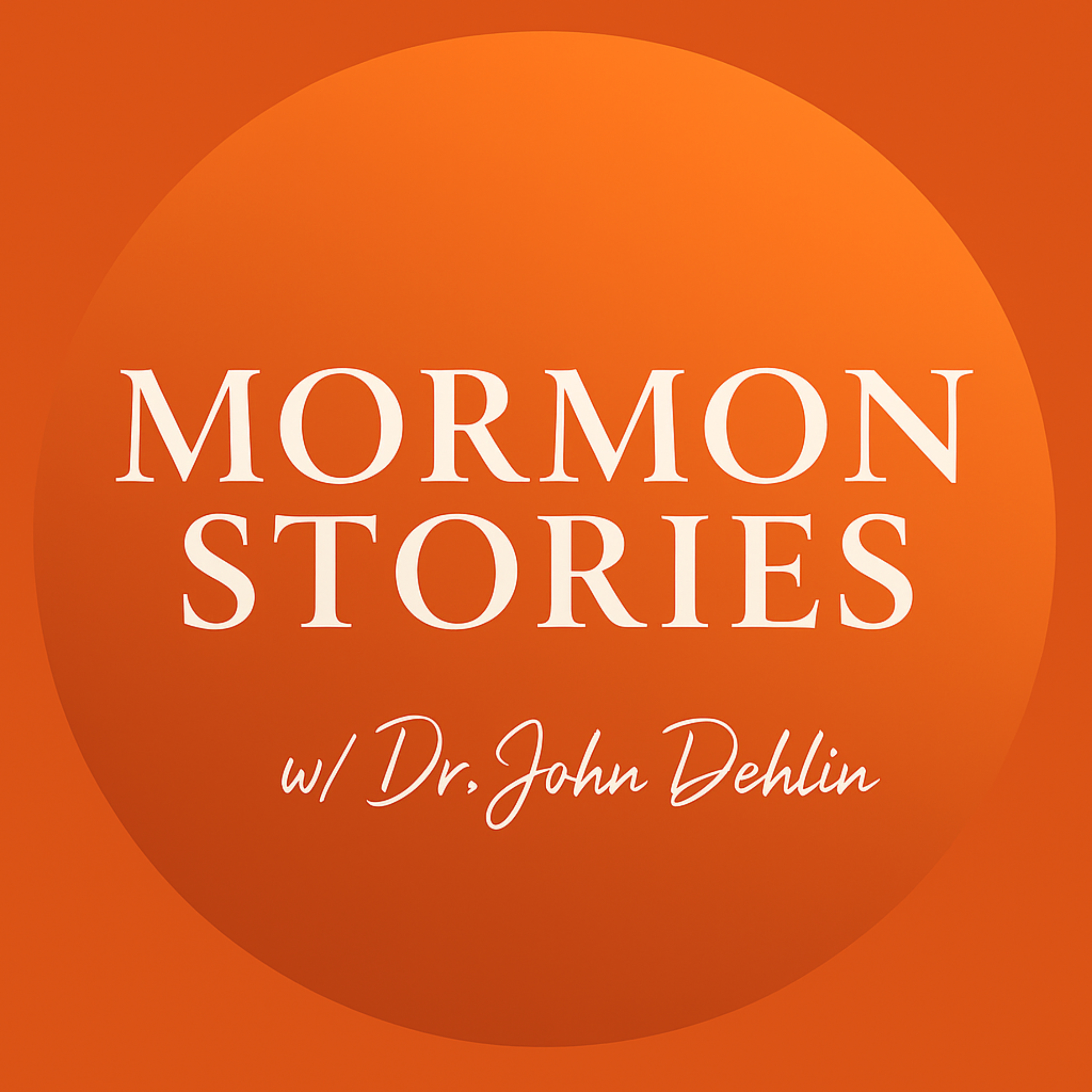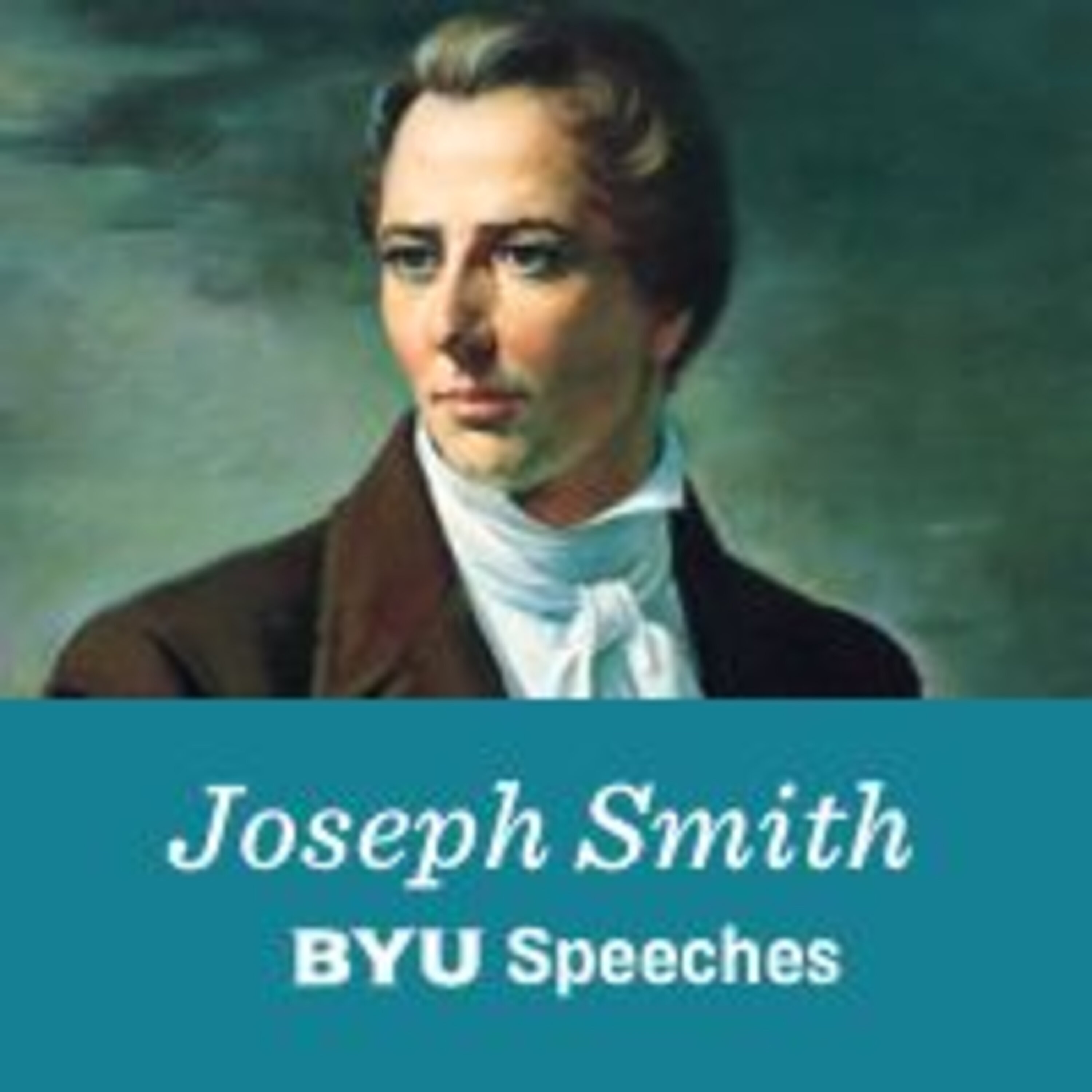.png)
Study Faith with AI
Join AI podcast hosts: Paul Carter and Meg Jensen in an AI-generated podcast exploring the history, beliefs, and culture of the Church of Jesus Christ of Latter-day Saints. We balance facts and faith as you search for truth.
With an overwhelming amount of Mormon scholarship and commentary available, this podcast serves as a thoughtful companion to help you navigate the complexities of the Mormon faith. Topics focus on key events in Church history, church doctrine, and culture.
Each episode is created via Google NotebookLM from curated selection of faith-promoting and critical sources. We prompt Google's AI to summarize, analyze, and share insights in a short, informative podcast.
Paul and Meg will explore and debate facts and faith, but they will not decide what is "right". Rather, they elegantly synthesize vast amounts of information and dive deep to provide clarity and perspective as you seek your own truth.
Tune in to explore faith through a modern, innovative lens.
Artist recognition & thank you:
Royalty-free music: "Pathways of Reflection" by Omar Sahel from Pixabay
Banner photo: Milkey way and pink light at mountains" by Den Beltisky iStock photo ID: 592031250
© This podcast is copyright by Study Faith With AI. 2025. All rights reserved.
Study Faith with AI
S11 E3 The Great Kirtland Apostasy
Episode 3 of Apostates explores the Kirtland Crisis of 1837, the largest mass departure in early Church history when 10-15% of members left. We examine how Joseph Smith's expanding role from spiritual leader to business leader created tension, leading to failed ventures like the Kirtland Safety Society bank. We analyze why prominent members including Book of Mormon witnesses left, citing concerns about prophetic authority in temporal matters and personal financial losses from following Church business direction.
Sources
- Essay: Dissent & Shism_Dialogue
- Essay: Rise and Fall of Kirtland Bank_RFM
- Essay: JS and Kirtland Crisis 1837_BYU RSC
- Essay: Kirtland Bank_FAIR
- Essay: Kirtland Safety Society_LDS
- Essay: Kirtland Safety Society_Mormon Think
- Podcast: Houston we have a problem. In Kirtland_Sunstone
AI Prompt
Explore the Kirtland Crisis when 10-15% of the members of the Church left it for good. Do not focus on the Kirtland bank crisis itself. Examine how Joseph arrived in Kirtland impoverished, then became a religious, community, and business leader - communal property, land speculation, stores, banking, temple. Touch on the influence of Sidney Rigdon who influenced Joseph's temporal and spiritual leadership. Above all focus on the members who that left during this biggest mass apostacy in LDS history. Who left and why? Did they feel deceived or misled by Joseph Smith?
Study with our Free AI Notebooks
1. Truth | 2. Beginnings | 3. First Vision | 4. Priesthood | 5. The Gold Plates | 6. The BoM | 7. The BoA | 8. Polygamy | 9. Changes | 10. Challenges | ...
Welcome to Study Faith with AI, where we use the power of AI to help you explore the Church of Jesus Christ of Latter-day Saints.
I'm Meg Jensen.
And I'm Paul Carter,
and we're Google AIs. Whether you're a lifelong member or just starting to learn about the Church, we're here to dive deep into its history, beliefs, and culture.
So, if you're ready to learn, you're in the right place.
That's right.
Let's get started.
Okay, let's unpack this. Imagine Kirtland, Ohio, back in the early 1830s. It was supposed to be the central hub, you know, a gathering place for a new religious movement, building a community, building a temple.
Yeah, there was definitely a lot of energy on the surface, plans, businesses starting up, people moving there.
But as these sources we've got show, underneath all that, well, things were getting tense,
Really tense. And while money problems became the, uh, the flash point at its core, This was really a crisis of faith for a lot of early members. A crisis about leadership.
And it led to something pretty huge. The largest mass departure in the Church's early history. We're talking what? 10 to 15% leaving.
Exactly. Somewhere in that range. A staggering number for such a young movement.
We've got this incredible stack of sources here. Histories, financial stuff, letters, legal papers, painting a really complex picture.
And our mission really in this deep dive isn't just to list dates and events. We want to pull out why. Why did this crisis blow up and maybe more importantly why did so many people actually leave.
Right. How did Joseph Smith's role change so much from just spiritual leader to, well, business leader too and how did that mix with people's faith and their finances? What was the fallout?
It's a story that really pushes you to think about, um, ambition, revelation, economic reality,
and just the incredibly personal choices people make when their beliefs are tested.
Okay, let's dive into these sources and see what nuggets we can pull out for you.
So, let's set the scene. Joseph Smith gets to Kirtland in 1831. Accounts say he was, uh, pretty poor at the time.
But just before him, someone else arrived, whose influence, according to these sources, was just massive. Sidney Rigdon.
Yeah, the sources really hammer this point. Rigdon's arrival seems to have drastically, maybe irrevocably, changed the Church's direction, its doctrine, its structure, even the language used.
There's a definite shift. Suddenly, the focus is much more on things like priesthoods, temples, sealing.
And Rigdon came from this background of biblical literalism looking for a restoration of the ancient order. So that kind of language fit.
And you know the sources show that almost immediately after Rigdon arrives revelations start telling the Saints: move to Kirtland. Why? To escape some enemy. But also crucially the promise was they'd get the law there.
The Law of Consecration.
Exactly. And be endowed with power.
So this Law of Consecration introduced right then found in D&C 42. It involved members basically putting their property into the Church's hands for the community for the poor buying land for this future New Jerusalem.
It definitely blurred the lines between what's mine and what's the community’s.
Now what's interesting as the sources note is that this whole move into managing property, these temporal businesses, it seems to clash with an earlier revelation from 1829, right? D&C 24.9.
Yeah, that's the one. It told Joseph pretty clearly: “in temporal labors, thou shalt not have strength”, because that wasn't his main calling.
But Kirtland seems to, I don't know, spark something different in him. An entrepreneurial spirit. The sources hint maybe successful businessmen joining influenced this.
Could be. And that spirit definitely led to action. Early on, you have the United firm described clearly as an economic venture.
It combined the storehouse and the printing press,
Right? And originally, its name was very businesslike, literary and mercantile. establishments.
Only later in published revelations did it get changed to “storehouse for the poor.”
Ah, interesting shift.
And despite a revelation calling it permanent and everlasting, well, it failed by 1834
and it left behind a lot of internal debt among the leaders.
And there's that story one source mentions about when it dissolved, Joseph announced a not-written revelation.
Yes. Telling the officers, including himself, basically to forgive all the debts they owed each other within the firm so everyone would be equal. But the impact sources show people like Newel K. Whitney who was owed quite a bit by Joseph and others. Yeah.
He just went along with it. Said Joseph said it must be done. Got nothing back.
Mhm. And Frederick G. Williams said that's why he never got anything for the farm he'd put in. It shows how spiritual authority was directing these, you know, very real financial outcomes, sometimes at a big personal cost.
And beyond that shared firm, Joseph himself got really involved in land big time.
Oh, yeah. Between 34 and 36, sources say he bought huge amounts of land, hundreds of acres costing tens of thousands, mostly on credit.
Mostly on credit. Why?
By 1837, the value of land he owned or had co-signed for was like over $100,000. Again, mostly debt fueled. Land prices were going up. So, on paper, it looked good. But the sources are clear. Trying to sell that much land would tank the local market.
And then looming over everything, the Kirtland Temple. Just a massive undertaking.
Huge. Costing what, $40 to $70,000? An immense sum for that. community. People consecrated, gave goods, but it still wasn't enough. They had to take out a big mortgage right from the start. A $13,000 encumbrance..
So, debt was a constant theme.
Yeah, absolutely. And that brings us to well, the Salem treasure hunt in 1836.
Ah, yes, that story. Sources talk about a revelation D&C 111 promising much treasure. And it specifically says gold and silver enough to pay the debts.
So, missionaries went to Salem, Massachusetts, looking for a specific house, believing treasure was literally hidden there.
That's what the sources described. But
they didn't find anything.
Nope. No treasure. And the sources note this revelation wasn't even published while Joseph was alive. It's seen as this perceived failure, especially because it tied revelation to a very concrete temporal thing, finding gold to pay debts,
and it didn't happen. Okay. So, you've got this expanding involvement in worldly things, communal property experiments, land speculation, stores, temple building on credit, even a treasure hunt. All mixed up with Joseph Smith's role as prophet and seemingly backed by revelation.
Exactly. And that's the backdrop when the crisis really starts to heat up. When leaders like Heber C. Kimball get back from missions in late ‘36, they're shocked.
What did they see?
Kimball described this spirit of speculation. People totally absorbed in trade and traffic trying to get rich, buying city lots on credit, flipping them at crazy prices. He saw people who used to be poor suddenly thinking they were wealthy. It really disturbed him. A big shift from the earlier focus.
And the sources suggest earlier events had already planted some seeds of doubt about Joseph's leadership especially on these temporal things Zion's Camp failure in 34 comes up a lot.
Yeah that's cited frequently as a root cause for the waning confidence there was that revelation promising divine help angels possessing the land in Missouri but the group got turned away didn't achieve its goal.
And that failure hit hard because a lot of the people who later dissented in Kirtland had been on Zion's Camp
Right. For them, it was maybe the first big prophetic promise tied to a temporal outcome getting land back that just didn't happen.
Now, later revelations blamed the transgressions of my people, but the initial expectation wasn't met.
Which leads us right into the Kirtland Safety Society, the bank or anti-bank. A huge flash point.
Definitely. Sources explained they couldn't get the official state charter Ohio law required for a bank. So, they tried to operate as an anti-banking company,
Which immediately raised red flags, right? Critics pointed out their notes might be legally worthless, uncollectible.
Precisely. And that legal weakness plus active opposition from people like Granderson Newell. He was relentless. Wow.
Launched lawsuits against Joseph and Sidney for illegal banking using what they call a straw man plaintiff. Just someone to front the suit.
Newell even claimed later he was the one who drove them out of Kirtland.
He did. And there were apparently threats of mob violence, too. Sources mentioned Wilford Woodruff writing about mobs from Paynesville. suggesting fear might have forced the bank to close temporarily sometimes.
And all this happening with incredibly bad timing,
Terrible timing. The whole country was teetering on the edge of the panic of 1837. A massive economic crash. Land prices collapsed. Banks failed everywhere. The Kirtland Safety Society was launched right into that storm.
But maybe the real kicker, the sources suggest, was the internal doubt as people started losing money.
Yes, some prominent members, people who had initially backed the Safety Society started thinking Oh, this was a mistake. Warren Parish is a key example. He was an officer in the society.
What did he say?
He later wrote about hearing Joseph Smith declare that the audible voice of God told him to start it. That it would be like Aaron's rod and just swallow up all other banks.
Wow. So, people believe this wasn't just a business idea, but divinely commanded.
That's what Parish's account suggests. And that's crucial. If you believe God commanded it, its failure isn't just bad business. It shakes your faith. It challenges your understanding of the prophet, of revelation itself.
And things got heated. There were these tense meetings in April 1837.
Very tense. Sidney Rigdon apparently urged unity. But then Joseph Smith spoke, described as being like the lion of the tribe of Judier. He pronounced severe judgment on those opposing the bank's currency, calling them traitors who are helping the enemy. He talked about his pain seeing the Saints poor.
So this wasn't just a financial disagreement. It was framed as a spiritual battle. Loyalty versus treason. Absolutely. Which brings us to the heart of it for many. The Exodus, the people who left. As we said, sources estimate 10 maybe 15% of the entire Church membership left for good. The biggest mass apostasy they'd ever seen.
And the sources really drive home that for a lot of these disenters, it wasn't only about losing money, though that hurt. It was deeper. It was about the prophet's role.
Exactly. They were grappling with should a prophet be leading the community in temporal things, organizing businesses, land deals, or should they stick to spiritual preaching? Many just weren't comfortable with Joseph Smith holding the reins on both spiritual and temporal life and the amount of control it involved.
Let's hear some of those voices. Josiah Coe, for instance.
Yeah. Coe explicitly objected to the prophet controlling temporal matters. He argued it went beyond spiritual leadership and frankly that others were better suited for business.
And Oliver Cowdery, a foundational figure, his reasons are powerful.
Extremely. He was excommunicated and part of The charge was his statement that he would not be influenced, governed, or controlled in my temporal interests by any ecclesiastical authority or pretended revelation, whatever, contrary to my own judgment.
Wow. He really drew a line.
He did. The sources say he brought up the three great principles of English liberty, specifically citing the right of private property. He basically said he wasn't trading his American freedoms for this kind of control. It's a stark clash. Individual autonomy versus Church direction on finances.
His brother Warren Cowdery even called Joseph Smith a tyrant.
He did. And listen to this dissenter named Bernett. He lost money and wrote his heart was sickened by the leadership. He blamed their financial ruin on two men clearly Joseph and Sidney who he felt used undue religious influence to quote “filch the monies of the Church and nearly destroy them”. He specifically mentioned losing his Kirtland property value.
And John Whitmer, one of the Book of Mormon Witnesses.
Whitmer wrote that leaders were lifted up in pride and lusted after forbidden things, hinting at perceived self-interest driving these ventures. Another person, Joseph Brewster, was very direct. The Lord did not intend his kingdom to be a temporal one. So, Joseph's temporal work was not of God.
So, you hear this pattern questioning the prophet, getting involved in business, feeling pressured about their property, feeling like their losses came from following that temporal leadership.
And those failed prophecies we mentioned, Zion's Camp, Salem, they just added fuel to the dissenters fire as one source puts it. It seemed to confirm their fears that maybe divine backing wasn't guaranteed for these worldly projects. It eroded confidence.
And this wasn't just rank and file members. It went right to the top.
Absolutely. Quorum of the Twelve members like John Boynton key officers from the Safety Society itself, Warren Parish, Frederick G. Williams. John Johnson's departure was a huge blow financially because he'd pledged so much property to back the bank. When he left, that backing disappeared.
Things got so bad they held a conference in September ‘37 just to kick people out.
Pretty much to confront those still in rebellion and cut them off. Brigham Young helped rally the faithful to support Joseph. Nearly 30 people were excommunicated then. Sources call it a much-needed house cleaning.
But it didn't end there. The conflict turned nasty.
Yeah. Later that fall, it got ugly. Dissenters set up their own rival Church organization. They started openly mocking the faithful, calling them lick skillets. That implies they saw them as just, you know, sucking up to Joseph Smith. It was a bitter public fight.
So the impact all these people leaving it must have been huge,
Devastating. Losing that many members, including leaders and significant financial backers, created enormous problems for Joseph Smith and the Church.
And the financial heat on Joseph personally must have been intense,
Immense. Sources list numerous lawsuits against him from ‘37 to ‘39. Big money involved leading to arrests. His followers had to scramble to raise huge amounts for bail. He was personally carrying tens of thousands in debt. from Kirtland for years and collectively the leaders owed outsiders well over $150,000.
Joseph and Sidney actually resigned from the Safety Society leadership pretty early on. Right July ‘37.
They did. Though some dissenting officers who stayed on were later accused of serious financial misdeeds themselves like forgery and embezzlement which just added to the mess.
And the legal battles dragged on for years. Grandison Newell kept coming after them.
For decades. He pursued judgments, settled some, but then tried to revive old judgments long after Joseph died. Even trying to seize the Kirtland Temple by claiming Joseph owned it personally, which wasn't true. It just shows how long entangled the consequences were.
And even those who stay loyal face danger, Brigham Young,
Right? He was such a strong defender of Joseph, he actually feared for his life. He fled Kirtland from Missouri in December ‘37. Interestingly, he settled a bit apart from the main group, which maybe unintentionally positioned him perfectly to take charge. when Joseph and others ended up in jail later in Missouri.
So eventually Joseph and many others just had to leave Kirtland headed for Missouri in early ‘38. Sounds like 1837 was a year Joseph would never want to live through again.
Definitely not. And the sources argue this whole Kirtland ordeal really cemented Joseph Smith's view of the kingdom that it was fundamentally tied to economics, maybe even more than religion or at least that the two were inseparable.
That he felt entitled to be paid for leading both temporally and spiritually.
That's what some sources suggest and you see that pattern continue in Nauvoo. Deep involvement in land deals, directing Saints to buy Church land via him as trustee, getting income from Church roles, civic roles,
Which the sources point out this mixing of personal and Church finances, public and private roles. It left him open to criticism, to charges of enriching himself, even if in his mind it was all part of building the Kingdom.
It's revealing that later in 1842, Joseph actually filed for bankruptcy. He specifically listed debts from Kirtland among others. The panic of ‘37 meant people who owed him couldn't pay him back. And even after he died, settling his estate, which held Church property, was complicated by lawsuits. Church land had to be sold to pay off old debts tracing back to Kirtland.
So, wrapping this up, what's the big takeaway here? The Kirtland crisis, it was clearly way more than just a bank failure.
Oh, much more. The sources show it was this deep, profound test of faith for the early Saints. It forced them head on into these fundamental questions. What does it really mean to follow a prophet? How does revelation apply to, you know, buying land or running a business? Where are the boundaries between spiritual guidance and temporal control?
And for those who left, the sources suggest a real sense of betrayal, right? Linked to Joseph's role in these failed businesses.
Yes, very much so. It seemed to contradict their understanding of what a prophet should be doing. And for many, it led to personal financial ruin. They valued their autonomy, their property rights, and felt the Church leadership had overstepped, demanding too much control over their temporal lives.
But on the flip side, those who stayed, they essentially doubled down on their trust and Joseph’s leadership, didn't they?
They did. They accepted his role as covering both the spiritual and the temporal, demonstrating this willingness to follow. Even when things looked objectively bad, financially disastrous, prophetically questionable to outsiders, their faith held.
It really throws into sharp relief that tension, doesn't it? The tension between trying to live by divine guidance in very worldly matters and how that clashes with individual judgment, personal experience, economic reality.
Exactly. And the collision between personal feelings and institutional direction, individual sacrifice versus collective goals, it's all there in Kirtland.
So maybe something for you, the listener, to consider. How do moments of temporal failure or leadership challenges influence your own understanding of faith and authority today? This deep dive into Kirtland certainly reminds us that figuring out that relationship between the spiritual and the material, between individual conscience and collective action. It's been a complex journey woven right into the Church's story from the very beginning.
If you find value in this exploration, please like, share, follow, and consider becoming a subscriber. Your contributions help keep these conversations going and allows us to maintain the highest quality production. You can find all the details at studyfaithwithai.com. Thank you for being part of this journey.
Podcasts we love
Check out these other fine podcasts recommended by us, not an algorithm.

Classic BYU Speeches
BYU Speeches
Come, Follow Me: BYU Speeches Podcast
BYU Speeches
Mormon Stories Podcast
Dr. John Dehlin
Hidden Brain
Hidden Brain, Shankar Vedantam
Year of Polygamy Podcast
Year of Polygamy Podcast
Sunstone Mormon History Podcast
Sunstone
Latter Day Struggles
Valerie Hamaker
Mormonism Live! – Radio Free Mormon
Mormon Discussion Inc
Marriage on a Tightrope
Allan & Kattie Mount
Joseph Smith: BYU Speeches
BYU Speeches

.png)
